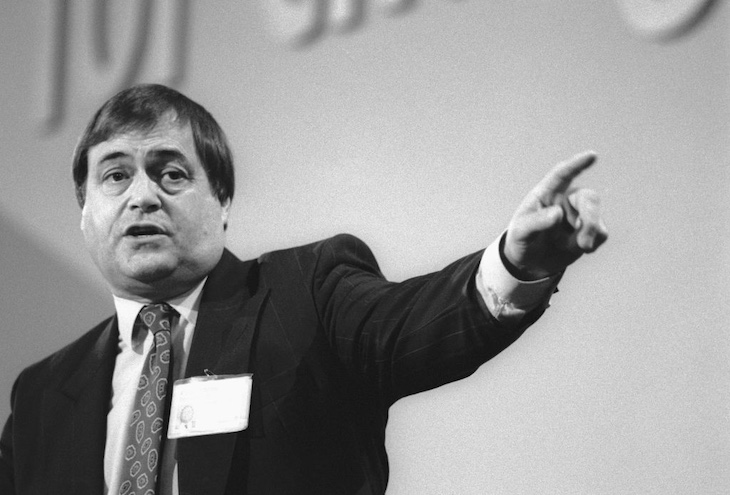John Prescott, Britain’s longest serving Deputy Prime Minister, has died at the age of 86. For 40 years he variously enlivened, enraged and entertained the Commons as the Honourable Member for Hull East. But his demeanour and public image belied a canny political judgement that took him from Merchant Navy seaman to holding some of the highest political offices in the land. From 1994 until 2007, he served as Tony Blair’s deputy, serving as the yang to his leader’s yin.
With his capacity for beer and brawls, Prescott sometimes seemed an unlikely moderniser among the metropolitan liberals of the New Labour elite. But he was key to securing the triumph of the Labour right in the early 1990s, delivering the closing speech of the 1993 Labour conference in which he rallied support for John Smith over the one member one vote system. Prescott’s passionate speech – ‘our leader put his head on the block’ – won the day, securing Smith’s leadership and paving the way for Blair’s succession and the electoral hegemony that followed.
For 40 years he variously enlivened, enraged and entertained the Commons
As deputy leader, Prescott proved useful in keeping the show on the road. Tensions between Blair and Gordon Brown – the infamous ‘TB-GBs’ – often threatened to destabilise the New Labour project, with Prescott deployed as a mediator. Over successive summits at his Admiralty House flat, he brokered a succession deal between the two men when their relations were at an all-time low. Blair later reflected: ‘In a tight spot, I thought you could count on him. On the basis of the tiger-shooting analogy (would you venture into the jungle with this person?), he passed muster.’
His legacy is certainly one of politics, not policy. From 1997 to 2001, he combined the deputy premiership with a ‘super-department’ for ‘Environment, Transport and the Regions’. His record here was patchy: rail and road links improved somewhat but he was chiefly remembered for his use of two ministerial cars, prompting the nickname ‘two Jags’. He subsequently assumed responsibility for local government, where his plans for regional assemblies were derailed by a landslide defeat in the 2004 North-East referendum. Personal satisfaction was found in the signing of the 2006 Kyoto Protocol on climate change which he had championed.
Prescott’s chief function was acting as one of the few remaining links between the parliamentary Labour party and its trade union roots. He was a genuine working-class voice in a cabinet full of middle-class graduates and was a Labour man to his core. Prescott served as the chief block on Tony Blair’s flirtation with a Labour-Liberal Democrat coalition in 1997 and was the most forceful opponent of PR.
He gave no quarter to political opponents, skewering Tories in parliament and the press. Watch his Question Time evisceration of Michael Heseltine on the minimum wage – or read his destruction of Paul Channon’s career in the Commons. Prescott was a hard, tough man, which is how he earned respect from friend and foe alike. On the campaign trail, he proved a pugnacious and spirited campaigner in each of Labour’s election triumphs, most memorably in 2001 punching a protestor who threw an egg at him.
‘When I do die, after 50 years in politics, all they will show on the news is 60 seconds of me thumping a fellow in Wales,’ Prescott later reflected. It was a self-deprecatory and self-aware response from a man who knew his weaknesses well. But Prescott’s life is much greater than that – as the outpouring of affection today shows.







Comments